Do British people still accept the lockdown?published at 18:09 BST 7 May 2020
Many say they would be uncomfortable leaving home even if restrictions were lifted.
Read MoreFirst Minister Nicola Sturgeon outlines plans to ramp up coronavirus testing, especially in care homes
Ms Sturgeon says the Scottish government has met and exceeded the target of 3,500 tests per day in NHS labs
The first minister says that, with UK government tests in Scotland, the total capacity is now 8,350 per day and will increase to more than 10,000 next week.
UK Health Secretary Matt Hancock says his pledge of 100,000 tests a day has been met, with 122,347 tests carried out yesterday
Scotland's chief examiner Fiona Robertson reassures pupils that grades this year will be based on "all activity throughout the year"
BBC Scotland News
Many say they would be uncomfortable leaving home even if restrictions were lifted.
Read MoreAs we end our live coverage of the latest coronavirus developments in Scotland, here is a summary of today's headlines:
Our live coverage will resume in the morning. See you then.
 Angie Brown
Angie Brown
Edinburgh and East reporter
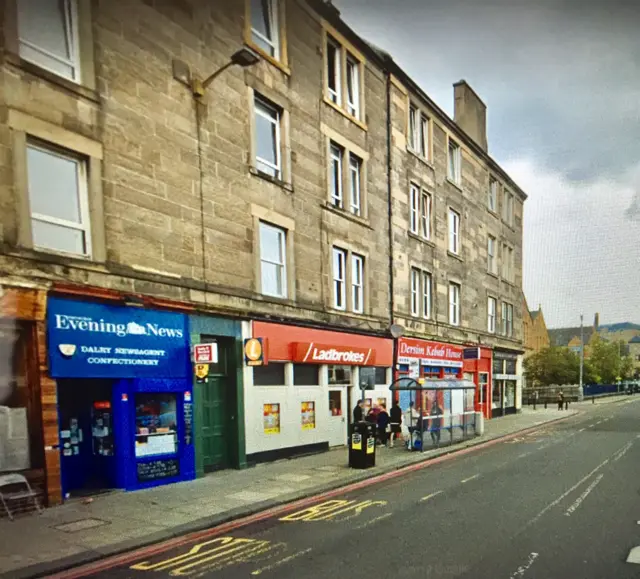
Edinburgh landlords are calling on council officials to waive council tax on properties which are lying empty due to the coronavirus lockdown.
Landlords are unable to conduct viewings of their flats to prospective tenants during the restrictions. Currently they only receive a 10% discount if the flat is empty.
John Davidson, 40, lost both his tenants at his two flats in Edinburgh's Dalry and Stockbridge when the lockdown was announced.
He said: "Normally they are really easy to rent out but I'm not allowed to do viewings just now so I've been left picking up the bills. I'm desperate to rent them out.
“You would think that while we are all in this together the council tax would be waived on empty flats.”
As we approach the end of our live coverage for today, take a look at some of Your Pictures of Scotland this week.
As always, there are some stunning shots in there.
Allow X content?
This article contains content provided by X. We ask for your permission before anything is loaded, as they may be using cookies and other technologies. You may want to read X’s cookie policy, external and privacy policy, external before accepting. To view this content choose ‘accept and continue’.
 Angie Brown
Angie Brown
Edinburgh and East reporter
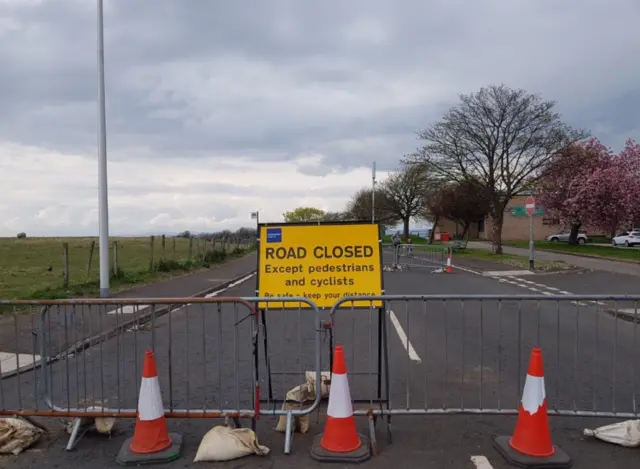
Edinburgh Council is banning traffic from three city roads to make more space for pedestrians and cyclists during the coronavirus lockdown.
The bottom of Silverknowes Road, heading towards the Cramond foreshore promenade, has been closed, while Braid Road and Links Gardens will shut from Sunday.
It is one of the first local authorities in the UK to introduce emergency measures to help pedestrians and cyclists to travel safely while observing physical distancing guidance.
Adam McVey, City of Edinburgh Council leader, said: "The way we move around the city has changed significantly over recent weeks and it's clear that we need to respond to this.
"We've been working closely with the Scottish government to develop measures to help pedestrians and cyclists travel safely while remaining socially distant."
Kirsten Campbell
BBC Scotland political correspondent
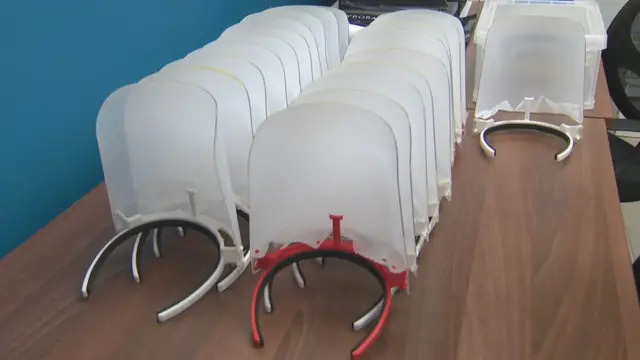
More than 1,600 companies have offered to help the Scottish government with vital supplies during the coronavirus crisis, with factories re-purposing production lines to manufacture much-needed kit.
Skyrora, in Loanhead, Midlothian, develops satellite launchers but switched production to face shields and is turning rocket fuel into hand sanitizer.
Business operations manager Derek Harris said “It was a bit more of a challenge than we expected. At first we thought we can make these and hand them out but then we realised we needed to get the correct licences and source the correct customers.
“We worked closely with the government and local care homes and our team deployed into different areas and we made it work.”
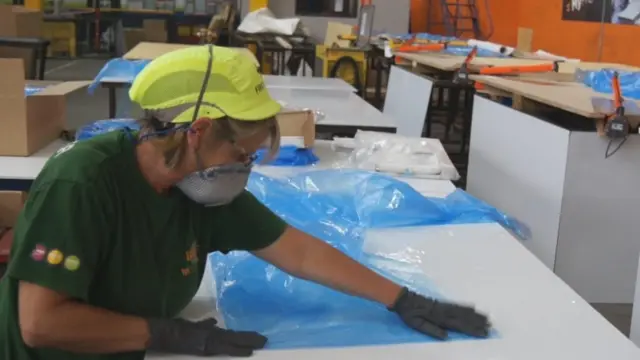
Berry BPI in Greenock lost contracts to China years ago. It is now producing hundred of thousands of NHS gowns and millions of aprons every week.
Chief executive Andrew Green said: “We saw a need. We saw that hospitals were likely to run out of these things, before it happened. We used to make these products, we know how to make them, so we were keen to help.”
You can see more on this on Reporting Scotland on BBC One Scotland at 1830.
 Drivetime with Fiona Stalker
Drivetime with Fiona Stalker
BBC Radio Scotland
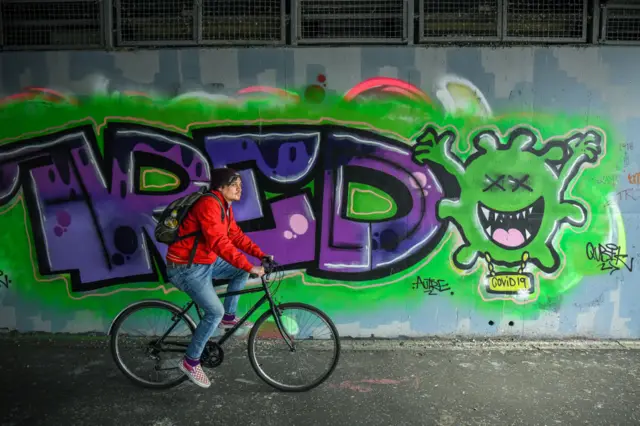 Image source, Getty Images
Image source, Getty ImagesScotland's national clinical director does not think that easing the lockdown will be achieved by relaxing rules for younger people first.
Prof Jason Leitch was responding to a suggestion by Sir David Spiegelhalter of Cambrige University.
"We certainly aren't ruling anything out, but it feels like such a difficult thing to do for society that I don't think it will be top of the list of things to do," Prof Leitch tells BBC Radio Scotland.
"But I can understand why public health professionals like him should absolutely enter the debate about what we should or shouldn't do."
 Drivetime with Fiona Stalker
Drivetime with Fiona Stalker
BBC Radio Scotland
Scotland's national clinical director has pleaded with the public not to think they can start "doing more" outside their homes.
"The data does suggest there is a small increase in car traffic - we are not quite sure why that is," Prof Jason Leitch told BBC Radio Scotland.
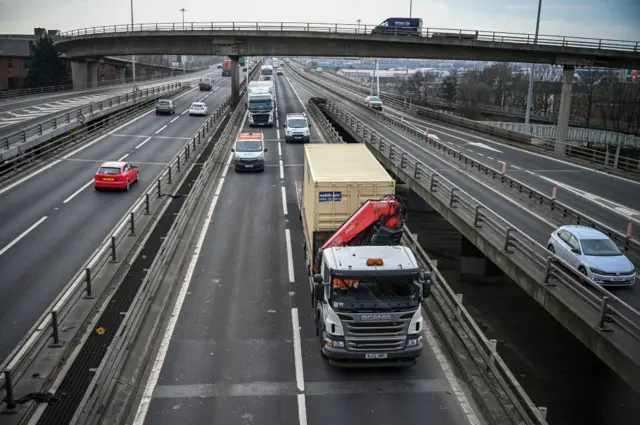 Image source, Getty Images
Image source, Getty ImagesPeople have warned against anything other than 'essential' travel
"Right at the beginning, we said, 'if your life is normal, you have misunderstood'. And now I think we're saying, 'if your life is changing, you have misunderstood'.
"If you think you can do more, you have misunderstood where we are in this pandemic curve, because we are not out of it."
Allow X content?
This article contains content provided by X. We ask for your permission before anything is loaded, as they may be using cookies and other technologies. You may want to read X’s cookie policy, external and privacy policy, external before accepting. To view this content choose ‘accept and continue’.
 Drivetime with Fiona Stalker
Drivetime with Fiona Stalker
BBC Radio Scotland
Treatment for people suffering chronic pain and battling cancer could restart within weeks rather than months, according to Scotland's national clinical director.
Prof Jason Leitch was responding to a BBC Radio Scotland listener who said she had been left in pain because of a lack of lignocaine treatment after the health service concentrated on treating Covid-19 cases and emergencies.
"Because of our good work, the health service has not been overwhelmed and we are beginning to think and plan about what we will be reintroducing," he said.
Prof Leitch stressed that those suffering chronic pain and cancer would be among the first to see treatment resume but warned that "we won't see anything like a normal service for a long time".
Allow X content?
This article contains content provided by X. We ask for your permission before anything is loaded, as they may be using cookies and other technologies. You may want to read X’s cookie policy, external and privacy policy, external before accepting. To view this content choose ‘accept and continue’.
 Fiona Walker
Fiona Walker
BBC Scotland
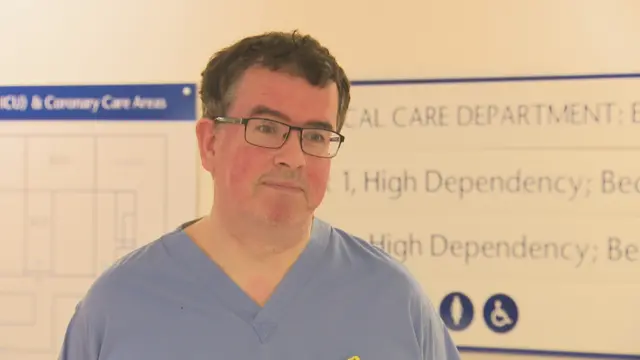
Dr Malcolm Sim
There may be no known cure for coronavirus as yet, but people all over the world are working hard to find treatments.
BBC Scotland was given access to NHS trials at the Queen Elizabeth hospital in Glasgow today where they are trying new and existing drugs to see if they can help save lives.
“I suspect there’s not going to be a magic bullet that makes people better from Covid,” says Dr Malcolm Sim, an intensive care consultant. “But it could be that different treatments given at the right time affect different aspects of the disease process.”
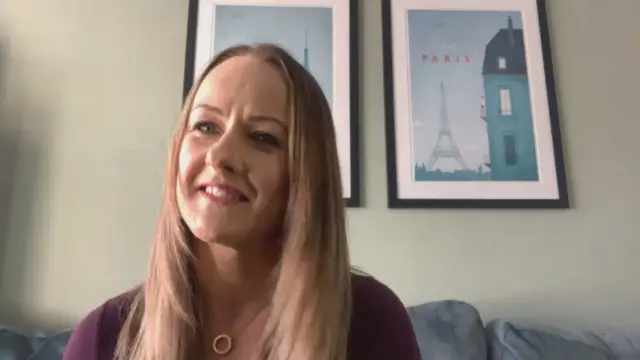
Fiona Young has recovered from Covid-19
We also talked to Fiona Young, a Zumba teacher, who has been through the disease.
“It’s scary to know you can’t just take a pill,” she says. “You would feel so much better. It would be such a relief if you could take something.”
The studies are looking at quicker recovery times, whether patients can avoid intensive care or being put on a ventilator. Ultimately, they hope to save lives.
Quote Message“We have no proven treatments that definitely work at the moment. So here’s hoping.
Dr Malcolm Sim, Queen Elizabeth Hospital
 Reality Check
Reality Check
Having set a target of 100,000 tests per day by the end of April, the government now says it reached 122,347 tests on Wednesday (the last day of the month).
The government had been averaging around 20,000 tests a day but this increased significantly over the last week.
When home testing kits became a significant part of the testing strategy last week, the Department of Health began counting those sent out as part of its daily test figures.
So, it doesn’t mean the test was actually used by someone on that day - or even received.
Previously, only instances in which the swab had been processed through a lab were counted as a test.
But the new definition - added on 27 April - included tests "posted to an individual at home".
On 29 April, the definition was extended yet further to also encompass "tests sent to... satellite testing locations".
According to figures released on 30 April, home testing kits accounted for over 18,000 of the daily tests, or a quarter of the total.
 Drivetime with Fiona Stalker
Drivetime with Fiona Stalker
BBC Radio Scotland
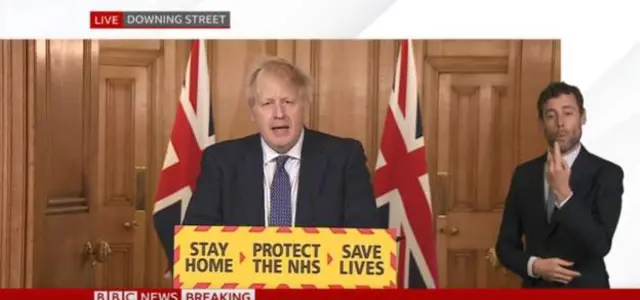
Prime Minister Boris Johnson's suggestion that the UK is "past the peak" of the Covid-19 outbreak has been described as premature by Scotland's national clinical director.
"I think it is really, really dangerous and tricky language to use," Prof Jason Leitch tells BBC Radio Scotland.
Echoing today's view from First Minister Nicola Sturgeon, he says: "I think we are on the peak. I think we are in that process of turning a corner. Think of Ben Nevis to Arthur's Seat. I think we are on Arthur's Seat and coming down the other side, just, but it is very fragile.
"I think the Prime Minister and the three first ministers have done their best to be open with the country. His language is more flowery than mine, but that is Boris Johnson rather than right or wrong."
However, Prof Leitch adds that "any suggestion that you can go out this weekend and behave any differently from last week is absolutely wrong. Of that, I am certain."
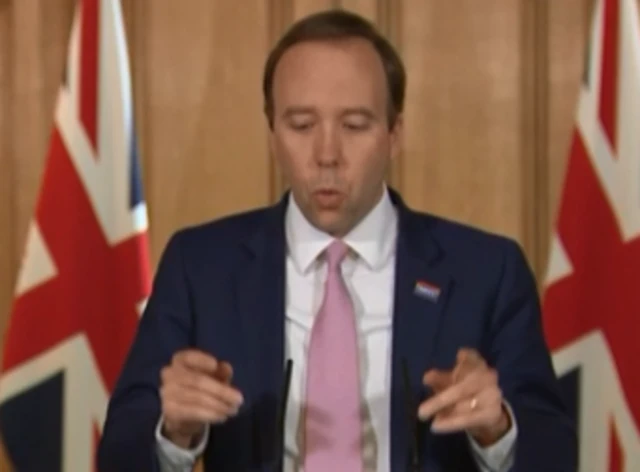
UK Health Secretary Matt Hancock says increasing testing is only the first part of the government's approach, and it will now move towards track and tracing steps.
Mr Hancock says tracking who has the virus and who they have been in contact with will drive the infection rate down, and "the lower it is the more effective it will be".
"Our goal must be freedom," says the health secretary.
"We will not lift measures until it is safe to do so, but we care about the restoration of social freedom and economic freedom."
Follow the rest of the briefing here.
 Drivetime with Fiona Stalker
Drivetime with Fiona Stalker
BBC Radio Scotland
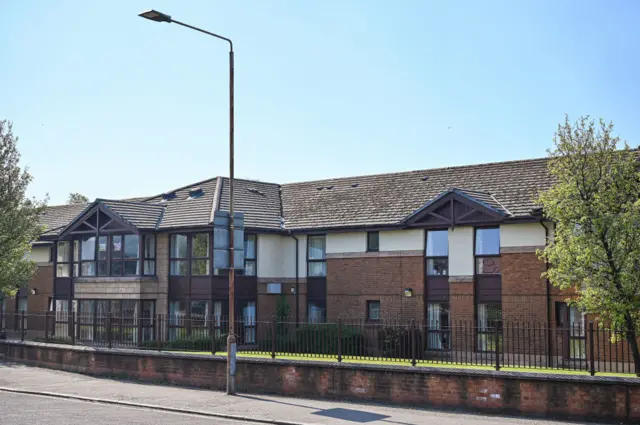 Image source, Getty Images
Image source, Getty ImagesExpanding the amount of testing for Covid-19 in Scotland's care homes could not have been announced earlier than today because the capacity was not there in the system, Scottish Care chief executive Donald Maskill insists.
Dr Macaskill admitted the number of deaths in Scottish care homes "were extremely distressing" and that "clearly there will be lessons to be learned and we will do things differently in the future" as "we have been overtaken by the global shortage in PPE".
However, he told BBC Radio Scotland that politicians, care providers and frontline workers were doing their best and stressed that "we also have to remember that the vast majority - over 80% - of even people in their 90s who develop this disease still go on to survive".
"Even individuals who are receiving end of life treatment can go on and beat this virus," he added.
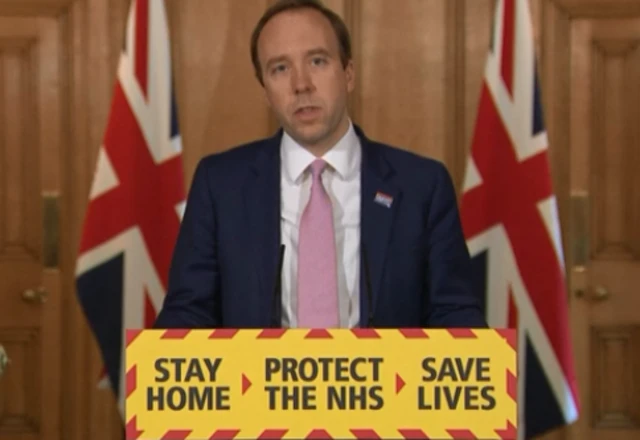
Health Secretary Matt Hancock has just started the UK government's daily coronavirus briefing.
He says a further 739 people have died since yesterday, bringing the total across all sectors in the UK to 27,510.
He also says the government met its target of 100,000 tests by the end of April, reporting that 122,347 tests were carried out yesterday.
You can follow the whole briefing here.
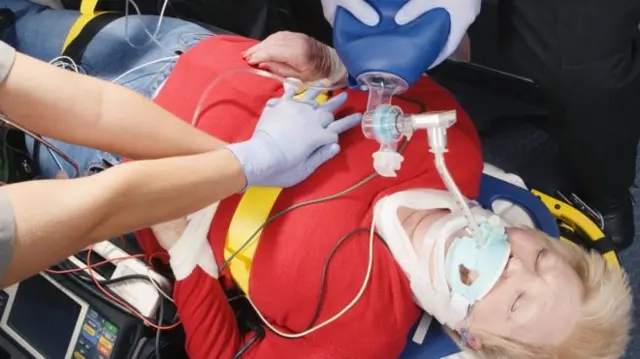 Image source, Getty Images
Image source, Getty ImagesSince lockdown began a debate has been ongoing around cardiopulmonary resuscitation (CPR).
CPR is an emergency treatment that tries to restart a person's heart or breathing and its most important components are chest compressions to pump blood around the body, and rescue breaths to provide oxygen, often referred to as the 'kiss of life'.
Since the lockdown began health officials have recommended not to use mouth-to-mouth CPR because of the risk of catching a potentially high dosage of Covid-19.
But, according to the Resuscitation Council UK, chest compressions are still permitted for members of the public, provided they follow the correct steps.
Read more here.
 Drivetime with Fiona Stalker
Drivetime with Fiona Stalker
BBC Radio Scotland
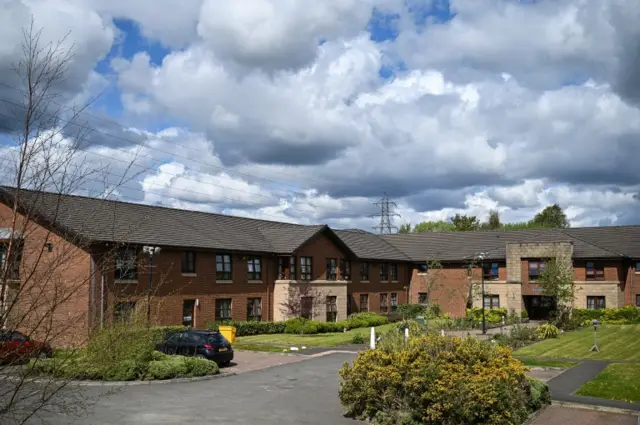 Image source, Getty Images
Image source, Getty ImagesToday's announcement that testing in care homes is to be expanded to all residents and staff that have one confirmed case of Covid-19 "will make an inordinate difference" according to Scottish Care chief executive Dr Donald Macaskill.
"Scottish Care was calling for this on Wednesday, so we're absolutely delighted," he tells BBC Radio Scotland. "I agree with the first minister that testing is not a panacea, but it is an additional tool in our battle against coronavirus."
Dr Macaskill, whose body represents the independent care sector, pointed out that growing evidence shows that, if there is one case, other residents or staff could be infected with the virus, even if they are not yet showing symptoms.
"The announcement will go a long way to give assurance to families and other residents and staff," he added.
Paul O'Hare
BBC Scotland News
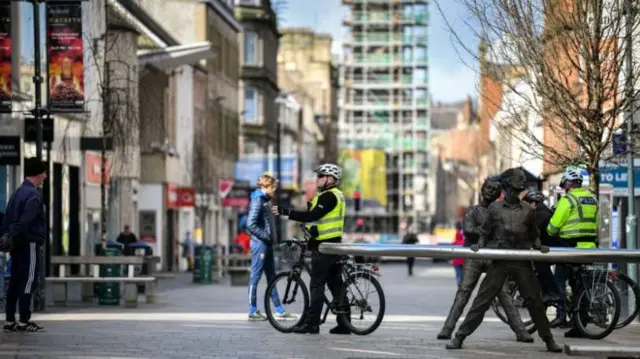 Image source, Getty Images
Image source, Getty ImagesPolice Scotland is receiving more calls from the public despite the coronavirus lockdown.
A Scottish Police Authority paper revealed there was an initial drop in the volume in the days after the restrictions were introduced.
But a report, by Assistant Chief Constable Alan Speirs for the Audit Risk & Assurance Committee, external, said: "Call volume has however increased, and is now higher than average in comparison to last year with a large amount of these calls from members of the public looking for advice and guidance on the new Covid regulations."
At the weekend it emerged recorded crime in Scotland is down more than a quarter since 23 March.
But public nuisance type incidents - mainly people reporting breaches of social distancing guidelines - have more than doubled compared to this time last year.
Looking ahead, the report noted: "Police Scotland is preparing for the medium and longer term implications of Covid-19 and the possible impacts of a number of scenarios e.g. warmer weather or continuation, relaxation or cessation of current social distancing measures."